Jeep Compass vs Toyota C-HR - Differences and prices compared
Compare performance (213 HP vs 223 HP), boot space and price (34200 £ vs 29100 £) at a glance. Find out which car is the better choice for you – Jeep Compass or Toyota C-HR?
Costs and Efficiency:
Price and efficiency are key factors when choosing a car – and this is often where the real differences emerge.
Toyota C-HR has a to a small extent advantage in terms of price – it starts at 29100 £, while the Jeep Compass costs 34200 £. That’s a price difference of around 5066 £.
Fuel consumption also shows a difference: Toyota C-HR manages with 0.80 L and is therefore significantly more efficient than the Jeep Compass with 5.80 L. The difference is about 5 L per 100 km.
As for range, the Jeep Compass performs decisively better – achieving up to 500 km, about 432 km more than the Toyota C-HR.
Engine and Performance:
Power, torque and acceleration say a lot about how a car feels on the road. This is where you see which model delivers more driving dynamics.
When it comes to engine power, the Toyota C-HR has a minimal edge – offering 223 HP compared to 213 HP. That’s roughly 10 HP more horsepower.
In acceleration from 0 to 100 km/h, the Toyota C-HR is somewhat quicker – completing the sprint in 7.40 s, while the Jeep Compass takes 8.50 s. That’s about 1.10 s faster.
In terms of top speed, the Jeep Compass performs slight better – reaching 188 km/h, while the Toyota C-HR tops out at 180 km/h. The difference is around 8 km/h.
Space and Everyday Use:
Whether family car or daily driver – which one offers more room, flexibility and comfort?
Both vehicles offer seating for 5 people.
In curb weight, Toyota C-HR is slightly lighter – 1505 kg compared to 1667 kg. The difference is around 162 kg.
In terms of boot space, the Jeep Compass offers to a small extent more room – 550 L compared to 447 L. That’s a difference of about 103 L.
In maximum load capacity, the Jeep Compass performs evident better – up to 1561 L, which is about 406 L more than the Toyota C-HR.
Who wins the race?
The Toyota C-HR proves to be wins the duel decisively and therefore becomes our DriveDuel Champion!
Toyota C-HR is the better all-rounder in this comparison.

Toyota C-HR
Costs and Consumption
View detailed analysis
Engine and Performance
View detailed analysis
Dimensions and Body
View detailed analysis
Jeep Compass
The Jeep Compass packs classic Jeep styling with a surprisingly composed demeanor, equally at home turning heads in the city or tackling a weekend dirt track. Inside it's a pragmatic, user-friendly compact SUV that prioritizes comfort and versatility — a smart pick if you want a dose of adventure without giving up everyday sense.
details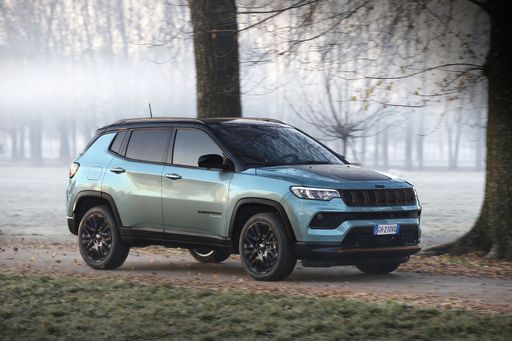
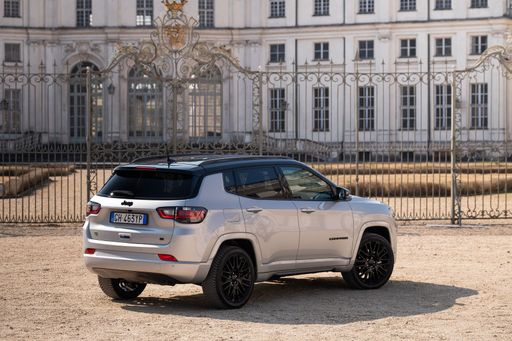
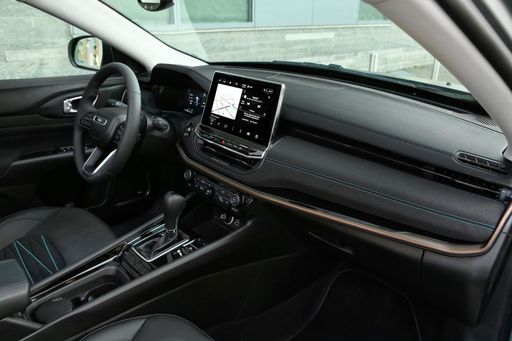
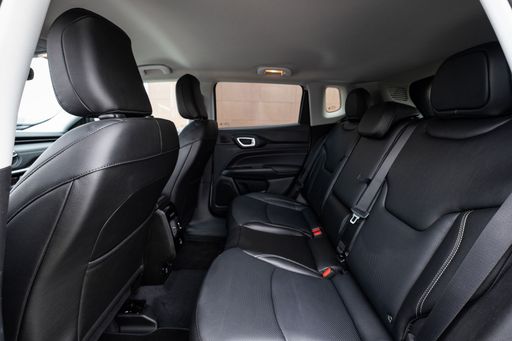
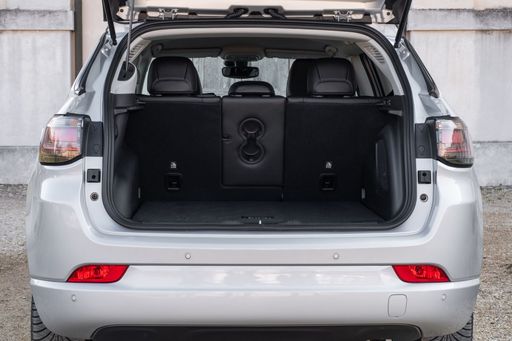
Toyota C-HR
The Toyota C-HR cuts a striking figure with its angular styling and coupe-like profile, so you’ll never go unnoticed in the supermarket car park. It balances everyday practicality with a nimble, city-friendly personality, making routine commutes feel a touch more fun without asking for forgiveness.
details




Costs and Consumption |
|
|---|---|
|
Price
34200 - 43200 £
|
Price
29100 - 42800 £
|
|
Consumption L/100km
5.80 L
|
Consumption L/100km
0.8 - 5.1 L
|
|
Consumption kWh/100km
17.50 kWh
|
Consumption kWh/100km
-
|
|
Electric Range
500 km
|
Electric Range
68 km
|
|
Battery Capacity
74 kWh
|
Battery Capacity
-
|
|
co2
0 - 130 g/km
|
co2
17 - 115 g/km
|
|
Fuel tank capacity
55 L
|
Fuel tank capacity
43 L
|
Dimensions and Body |
|
|---|---|
|
Body Type
SUV
|
Body Type
SUV
|
|
Seats
5
|
Seats
5
|
|
Doors
5
|
Doors
5
|
|
Curb weight
1667 - 2198 kg
|
Curb weight
1505 - 1755 kg
|
|
Trunk capacity
550 L
|
Trunk capacity
350 - 447 L
|
|
Length
4552 mm
|
Length
4362 mm
|
|
Width
1928 mm
|
Width
1832 mm
|
|
Height
1675 mm
|
Height
1558 - 1564 mm
|
|
Max trunk capacity
1561 L
|
Max trunk capacity
1076 - 1155 L
|
|
Payload
-
|
Payload
375 - 425 kg
|
Engine and Performance |
|
|---|---|
|
Engine Type
Petrol MHEV, Electric
|
Engine Type
Full Hybrid, Plugin Hybrid
|
|
Transmission
Automatic
|
Transmission
Automatic
|
|
Transmission Detail
Dual-Clutch Automatic, Reduction Gearbox
|
Transmission Detail
CVT
|
|
Drive Type
Front-Wheel Drive
|
Drive Type
Front-Wheel Drive, All-Wheel Drive
|
|
Power HP
145 - 213 HP
|
Power HP
140 - 223 HP
|
|
Acceleration 0-100km/h
8.5 - 10.3 s
|
Acceleration 0-100km/h
7.4 - 9.9 s
|
|
Max Speed
180 - 188 km/h
|
Max Speed
175 - 180 km/h
|
|
Torque
230 - 345 Nm
|
Torque
-
|
|
Number of Cylinders
3
|
Number of Cylinders
4
|
|
Power kW
107 - 157 kW
|
Power kW
103 - 164 kW
|
|
Engine capacity
1199 cm3
|
Engine capacity
1798 - 1987 cm3
|
General |
|
|---|---|
|
Model Year
2025
|
Model Year
2024 - 2025
|
|
CO2 Efficiency Class
D, A
|
CO2 Efficiency Class
C, B
|
|
Brand
Jeep
|
Brand
Toyota
|
What drivetrain options does the Jeep Compass have?
The Jeep Compass is available as Front-Wheel Drive.
The prices and data displayed are estimates based on German list prices and may vary by country. This information is not legally binding.




